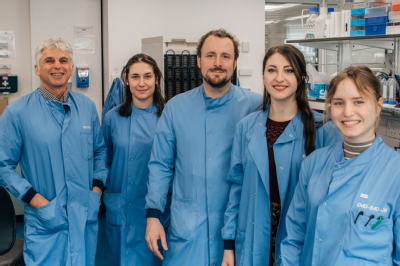University of Oxford Rogue cell research to better understand coeliac disease
Immune cells in the gut are designed to fight infectious and damaged cells but also to repair the lining of the gut after the infection has been defeated. In people with coeliac disease these immune cells are wrongly activated to destroy healthy cells in the lining of the gut, in the presence of gluten. We know that this happens, but it is still not entirely understood why these cells respond specifically to pieces of gluten.
Previous research by the team has suggested that there are cells in the gut that have special receptors that recognise proteins from gluten and trigger the immune response. This project is designed to test that theory.
 The Oxford University scientists plan to:
The Oxford University scientists plan to:
- Extract these receptors from gut tissue samples from patients with coeliac disease
- Identify what these receptors look like by sequencing their genetic material
- Investigate how and where these receptors interact with other immune cells in the gut, using a miniature models of the gut grown in the lab from real human tissue (organoids)
Understanding all of this could provide us with the information we need to treat or potentially even prevent coeliac disease.
If you would like to donate to this project, please see here
Project title: Determining the antigen-specificity and function of CD8+ TCRαβ+ and TCRγδ+ intraepithelial lymphocytes in coeliac disease
Principle investigator: Dr Michael FitzPatrick
Institution: University of Oxford
Grant awarded: £250k
Project start: July 2024
Project duration: 3 years